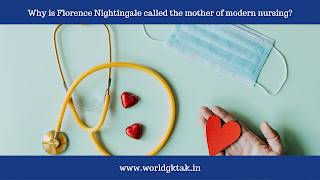Why is Florence Nightingale called the mother of modern nursing?
Florence Nightingale is often hailed as the "Mother of Modern Nursing" due to her transformative contributions to the nursing profession during the 19th century. Born on May 12, 1820, in Florence, Italy, Nightingale's impact on healthcare practices, nursing education, and public health laid the groundwork for modern nursing as we know it today.
One key aspect of Nightingale's legacy is her pioneering work during the Crimean War (1853-1856). Appalled by the deplorable conditions in military hospitals and recognizing the crucial role of sanitation in healthcare, Nightingale implemented rigorous hygiene practices.
She emphasized cleanliness, proper ventilation, and adequate nutrition to improve patient outcomes. Nightingale's meticulous record-keeping and statistical analysis demonstrated a significant reduction in mortality rates, showcasing the empirical basis of her nursing interventions.
Moreover, Nightingale's emphasis on education revolutionized the training of nurses. In 1860, she established the Nightingale Training School for Nurses at St Thomas' Hospital in London.
This marked a departure from the prevailing notion that nursing was an occupation without formal education. Nightingale's school set standards for nursing education, including a structured curriculum, practical training, and ethical guidelines. Her vision elevated nursing from a menial task to a respected and educated profession.
Nightingale's commitment to evidence-based practice also distinguished her as a trailblazer. She emphasized the importance of scientific knowledge in nursing, advocating for continuous learning and research.
Her book, "Notes on Nursing: What It Is, and What It Is Not," published in 1859, became a seminal work, guiding nurses in providing compassionate, informed care based on scientific principles.
Beyond the clinical realm, Florence Nightingale was a social reformer and public health advocate. She recognized the significance of preventative healthcare and addressed broader societal issues influencing health outcomes.
Nightingale's advocacy for sanitation, health education, and healthcare infrastructure laid the groundwork for public health initiatives, emphasizing the holistic well-being of communities.
In summary, Florence Nightingale earned the title "Mother of Modern Nursing" by revolutionizing healthcare through her pioneering efforts in the Crimean War, her establishment of a formal nursing education system, and her advocacy for evidence-based practice and public health. Her enduring influence continues to shape the nursing profession, emphasizing the integral role of education, research, and compassionate care in modern healthcare.
Tags:
Question And Answer

